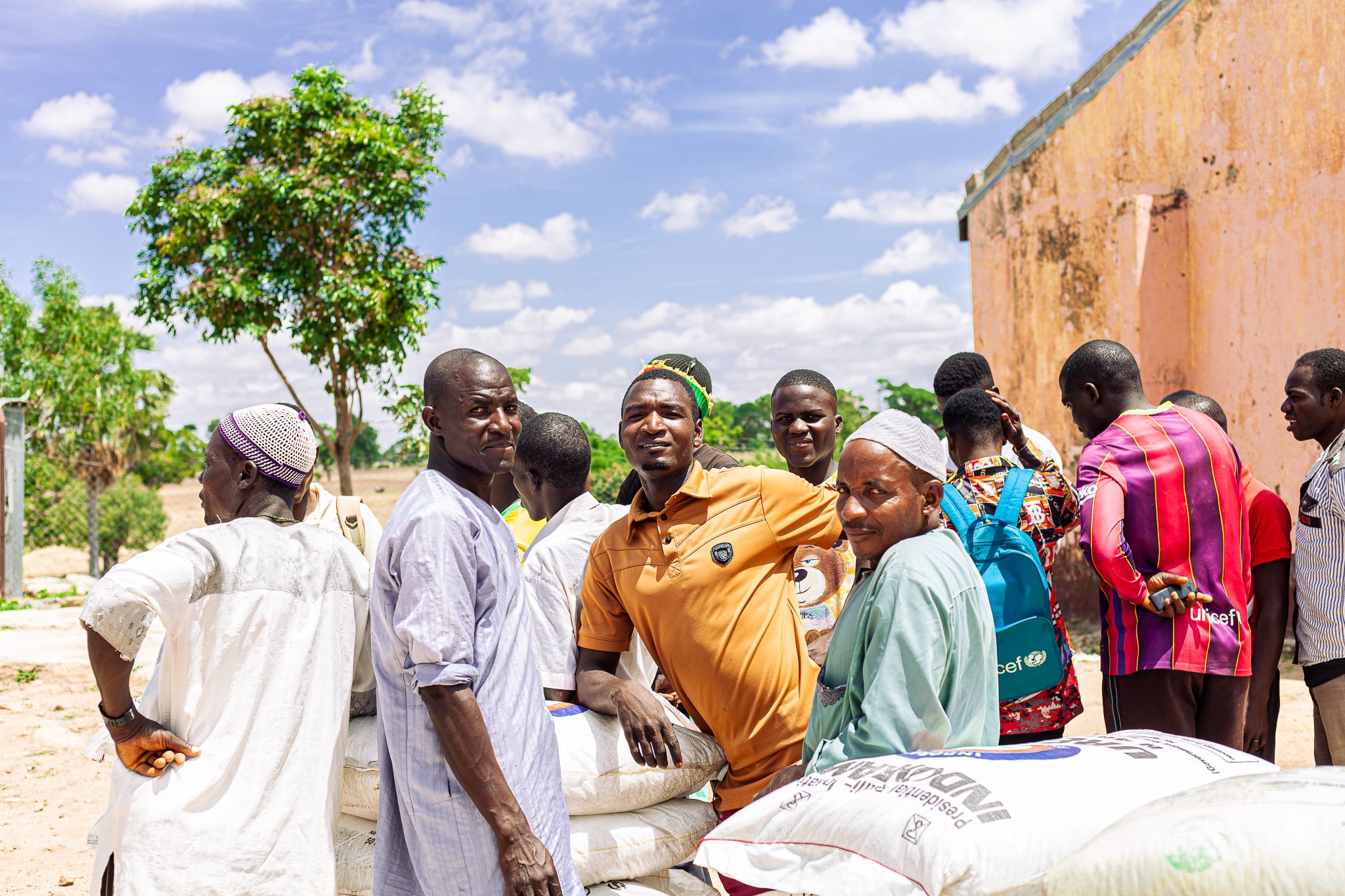Reading time:5 min read
Can stronger rural economies help end hunger?
If you had cereal this morning, you should thank a farmer. There's a significant possibility that the maize and soybeans you enjoyed in your meal were grown by smallholder farmers. Did you know they make up 80% of food production in Africa? on the back of this is the immense value a functional market network and rural development has to offer us in food systems in Africa.
In recent times, challenges posed by the COVID pandemic, the disruptions in the Black Sea region, and the fluctuations in shipping costs due to trade imbalances, the vulnerabilities inherent in overreliance on international trade, have been brought to the forefront.
In 2017, Africa expended $64.5 billion on food imports alone. Environmental factors such as droughts, flooding, and high population growth majorly influenced the increased rate of importation. Amidst this are the skyrocketing prices of essential food items, exacerbated by factors like supply chain disruptions and inflation, which have made it increasingly difficult for vulnerable populations to access nutritious meals. Africa's participation in the global food market opens up opportunities for economic growth. Still, it also makes the continent susceptible to external challenges like trade disruptions and pandemics, as demonstrated by the impact of COVID-19 disruptions in the Black Sea region and the fluctuations in shipping costs due to trade imbalances.
The fragility of our food system is deeply intertwined with the lack of a robust market structure and inadequate rural development. Given the imbalance between supply and demand, Africa's food system faces a looming crisis. Fluctuating food prices in Africa have been linked to unstable market structures, causing hardship for both farmers and consumers.

Why Market Structures Matter.
Market structures ensure that food reaches consumers promptly and at reasonable prices. Inefficient structures can lead to food waste and increased prices, burdening vulnerable populations. With a list of benefits like access to market, market stability, and efficiency in the distribution of food, correcting the imbalance between supply and demand of food in our societies.
Stable market structures contribute to price stability, ensuring that both producers and consumers have a predictable environment in which to operate, helping dismantle the frequent fluctuations of food prices in Africa, which have been linked to unstable market structures, causing hardship for both producers and consumers.
To achieve an efficient market structure in Africa, we would need to revamp our fragmented supply value chain and reduce costs for producers in our food system, resulting in a resilient market that can absorb shocks and ensure that food is available even in challenging times. To quote a 20x speech by Rhoda Peace Tumusiime, Global Panel Member and former Commissioner for Rural Economy and Agriculture, African Union Commission. “Food systems in fragile contexts need to become much more resilient to shocks. Therefore, infrastructure development – roads, energy, markets, water – must be a high priority, especially for those whose livelihoods are dependent on agriculture.”
Today, 3.83 billion livelihoods are dependent on agriculture. We need to deploy worthy interventions in logistics and marketing and the means to get integrated value chains functioning more effectively in Africa. According to the World Bank, Africa’s farmers and agribusinesses could create a trillion-dollar food market by 2030 if they can expand their access to more capital, electricity, better technology, and irrigated land to grow high-value nutritious foods and if indigenous governments can work more closely with agribusinesses to feed the region’s fast-growing urban population and curb the excessive dependence on imports.
When a transparent and fair market system determines the value of a commodity – which is the role of any commodities exchange – it promotes investment, aids transparency around prices and helps produce an equitable distribution of value across the system.

Role of Rural Development in our Food system.
The weak market structure exacerbates rural poverty as farmers struggle to access profitable markets. This, in turn, discourages investments in rural development, creating a vicious cycle of food insecurity. The vitality of Africa's food system is intrinsically linked to rural development, and the lack of rural development in Africa has significantly contributed to a weak food system in several ways, prevailing by poor Infrastructure, limited access to resources, rural poverty, food insecurity, lack of diversification, and policy and governance issues.
Improving the productivity of smallholder farms in Sub-Saharan Africa offers the best and shortest path to meet rising food needs. rural development entails enhancing the overall well-being of rural areas, encompassing agricultural and non-agricultural facets. This enhancement encompasses investing in healthcare, education, and rural infrastructure, fostering effective markets and value chains. Improved rural infrastructure, including roads and storage facilities, reduces post-harvest losses and enhances the efficiency of food distribution, thereby providing healthy, decent, and profitable livelihoods for the dwellers.
We need strong markets, rural development, and investment in infrastructure and education to build a resilient and equitable food system. This will empower farmers and improve food distribution, fostering a prosperous future. Let's work as both private and public sectors together to transform challenges into opportunities and ensure food security and economic growth for Africa.
Written by Kamaldeen Raji, Managing Director, AFEX Fair Trade Nigeria.
